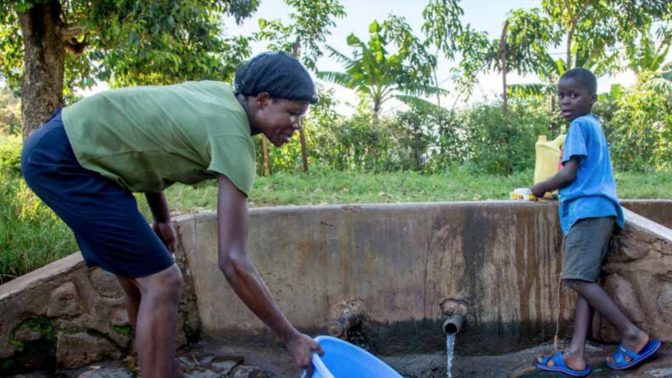Study: Leveraging a decentralized entrepreneurial approach to safe water supply in Kenya
This comprehensive study, authored by Siemens Stiftung, looks at water kiosks and their impact in rural Kenya, and the role of social enterprises in providing access to safe drinking water. Unfortunately, access to safe water, sanitation, and hygiene doesn’t exist for 40% of the world’s population, impacting women and girls the most.

The study was conducted in Kenya where only 1/3 of people have unrestricted access to drinking water. Despite advancements, developing and sustaining rural infrastructure continues to pose a significant financial challenge; Kenya will need approximately USD $22 billion by 2030 to achieve universal water supply across the nation. Currently, only half this amount is available.
With this context in mind, Siemens Stiftung and SkyJuice Foundation launched a model project Safe Water Enterprises (SWE), locally known as Maji Safi in 2012. SWE operates on a local social business model to provide access to safe drinking water at an affordable price.
Now women and girls don’t need to go out in the dark to fetch drinking water from far-off or crocodile-infested water sources as they have access to safe drinking water at their disposal, resulting in better health conditions and reduced cases of gender-based violence. They have more time to engage in other productive activities like concentrating on their education and participating in the economic opportunities generated by SWE.

This study highlights that, compared to traditional water supply systems, decentralized kiosk models are more cost-efficient in providing safe water to rural communities. Currently, there are 11 water kiosks in seven counties located in Kenya. To date, they have supplied over 48 million litres of safe drinking water to over 6,600 households serving over 33,000 people.
Safe water is a human right, a stabilizing force, and a catalyst for sustainable development. This was at the heart of launching the Safe Water Enterprise project. We joined forces with local authorities, community organizations, districts, NGOs, and local implementing partners to ensure that no one is left behind.The study showcases that access to clean water has led to the overall productivity and well-being of the community. It is a strong testimony to how an enabling environment and community engagement can pave the way for the Sustainable Development Goal of ensuring safe drinking water and hygiene for all.
Learn more in the full study here.